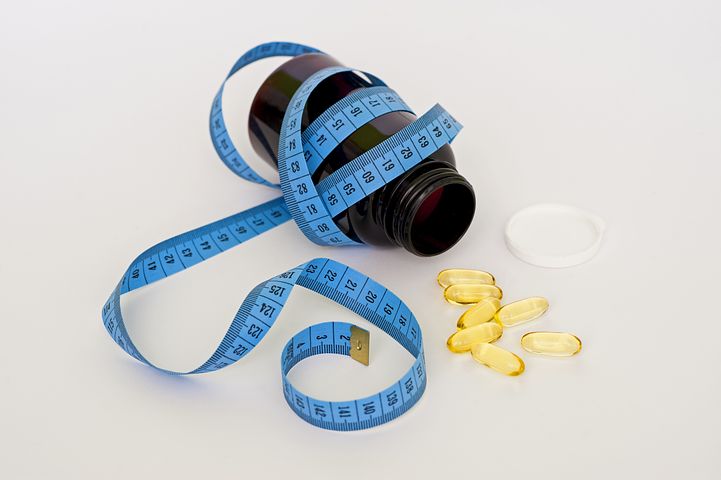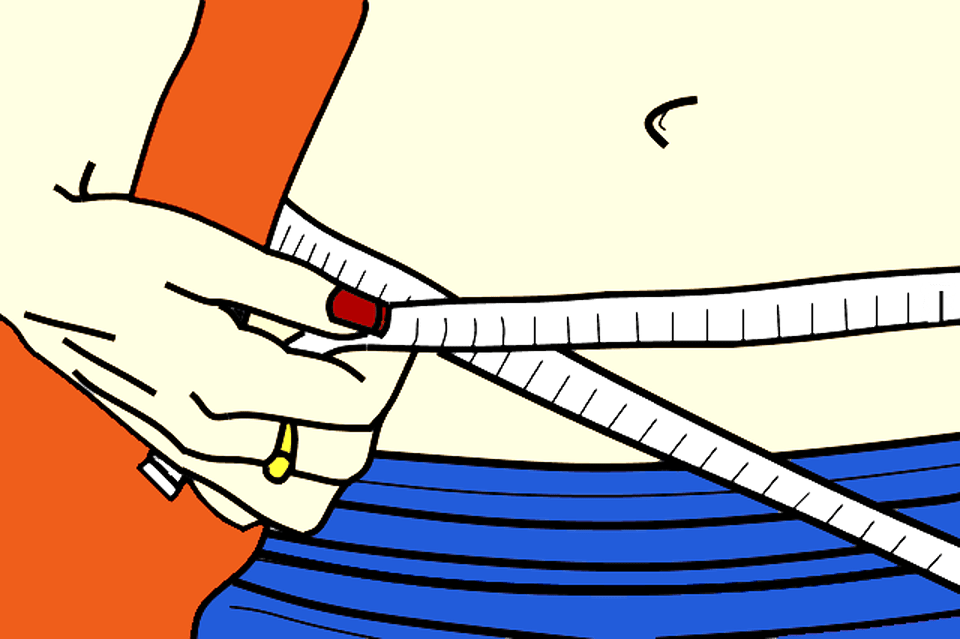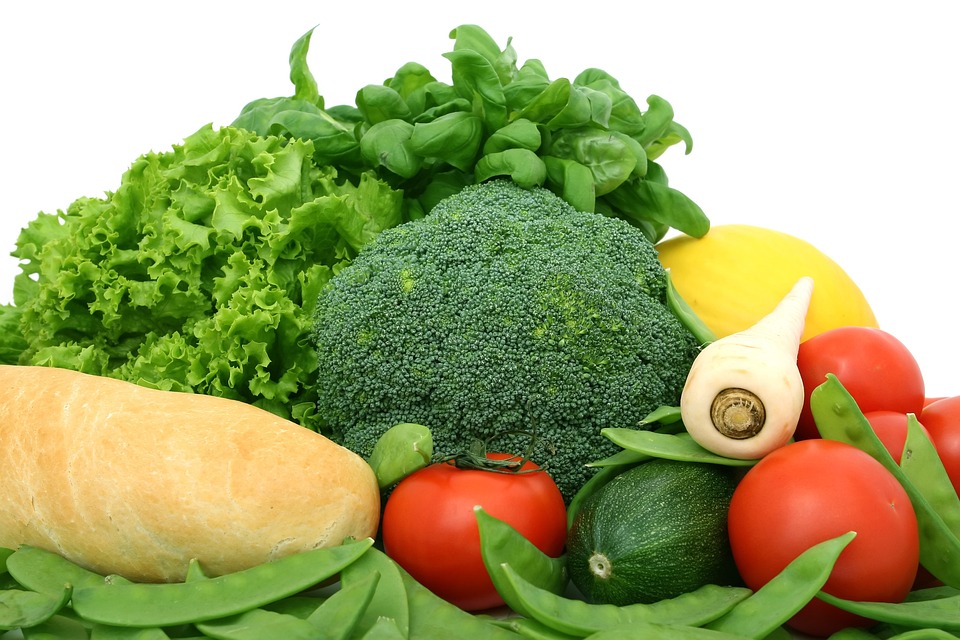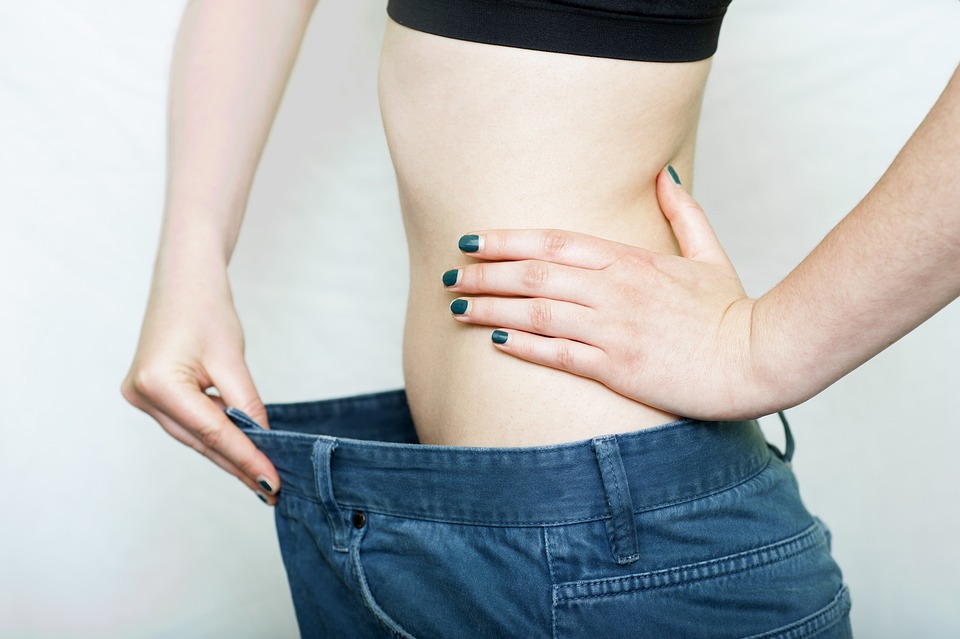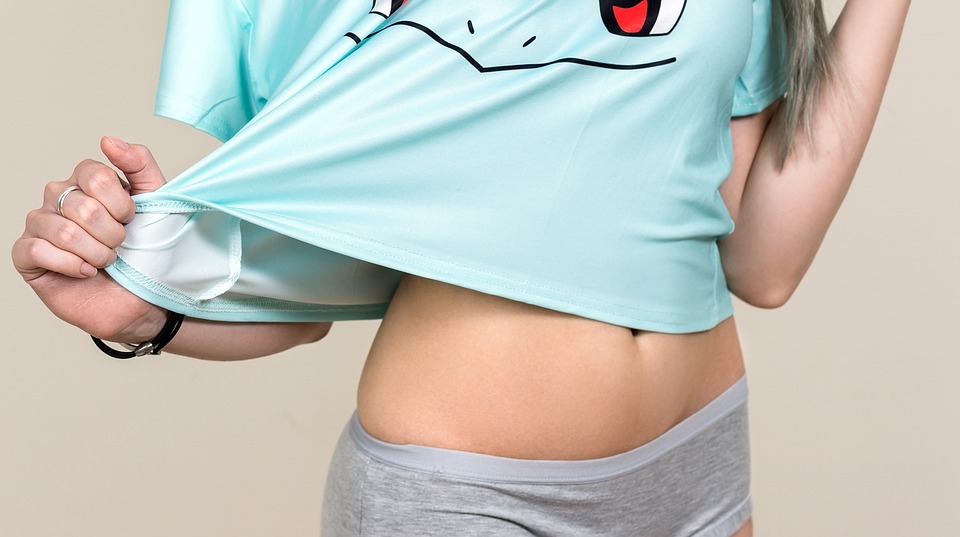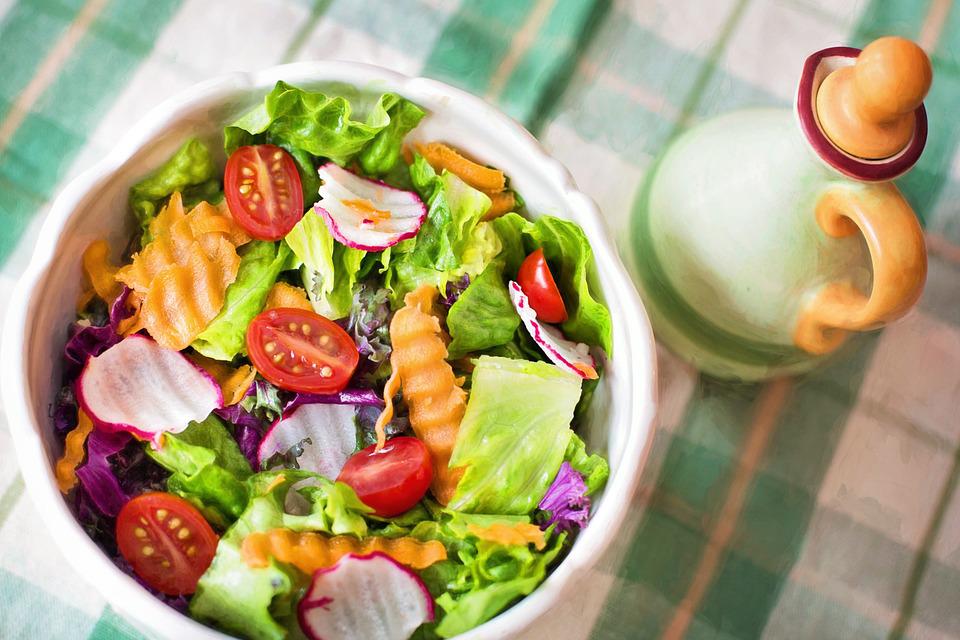
It’s always interesting when someone who is thin, rich, and has no relevant training decides to sell a diet program to fat people that they claim will change their life.
I wonder how many diet experts have food issues of their own and project them onto others.
Whose diet you’re thinking of following is not as important as having some common red flags to watch for.
Here are some red-flag diet myths these ‘experts’ have told their followers (in most cases, verbatim)
RAW VEGETABLES HAVE “NEGATIVE CALORIES.”
There is no food that requires more calories to digest than it contains. Even celery, which has very few calories, doesn’t take more calories to digest than it has in it.
Be careful of people who believe this myth, which shows they have a very limited understanding of nutrition.
You shouldn’t have to eat dinner if you’ve eaten enough during the day.
According to the expert, melatonin is released when it gets dark, which signals to the body that it is not time to eat.
Additionally, if you find yourself still feeling hungry after lunch, adding in another snack before dinner can help tide you over.
This is a ridiculous assertion because they’ve never been to Europe and neither have any of their followers.
The melatonin that is secreted in response to darkness does not have an effect on our metabolic rate or on our ability to digest food.
The suggestion that we don’t need to eat dinner, and just need to ‘add another snack’ during the day to replace the evening meal, is based on the false premise that a low-calorie diet is somehow healthier than a regular diet.
Eating food late at night has no benefits until a few hours have passed, according to a new study.
This person claims that eating a meal later in the evening tricks the body into thinking it needs to be more active because that is the natural response to eating.
Nope.
The act of eating is not useless, even if we are not using the energy from the food immediately. This is because the body is able to store macronutrients for later use.
The body doesn’t need insulin to process protein, so eating a protein-rich breakfast will help the body burn more calories.
The following is an example of someone who is uninformed attempting to persuade others that the typical reaction of our bodies to food is incorrect.
Protein cannot activate anything on its own. It is beneficial to consume protein for breakfast, but not because of some magical power it has.
High protein foods may cause your pancreas to release insulin, but there is no need to avoid eating them. Producing insulin in response to food is a normal function of the pancreas.
Protein requires more energy to digest than carbs, meaning that more calories are burned processing protein.
A 200-calorie meal made up of only carbohydrates will burn up to 20 calories while being metabolized.
A 200-calorie meal that is only protein will cause your body to burn up to 60 calories to metabolize it.
The 70% figure most likely came from invention to convince followers that the research has been done.
Having a snack for lunch instead of a meal is perfectly acceptable if it leaves you feeling satisfied. A lot of people feel the need to have a larger portion at lunch because it is traditionally seen as a meal, but meals are just something we have socially constructed.
Here we go again with the shaming around being social with food.
It’s identity Food is social in that it connects people and creates community. It is tradition, it is shared, and it is a way to remember those who have passed away. It is also a part of identity.
There is NOTHING wrong with any of this.
The text is recommending having a side salad with dinner when your family is eating a normal meal.
What message does that send to your kids about food and the meaning of family meals?
I think it’s wrong to tell people they’re wrong for eating larger portions. Meals are meals, and snacks are snacks. While I don’t encourage overeating, I think it’s pretty wrong to tell people that they’re wrong for eating larger portions.
You can’t trick your body into lasting longer without food by eating more food. All that will happen is a momentary spike in insulin levels, followed by a crash.
This text is gibberish to someone who is not knowledgeable in the subject matter. To someone who is knowledgeable in the subject matter, it is all garbage.
Heavier meals that contain fat and protein will keep us feeling fuller for a longer period of time.
If I eat cheese and crackers for lunch, I’ll feel full until around 2pm.
If I eat a meal with a proper ratio of carbohydrates, fats, and proteins, I will feel full for a longer period of time.
This is why we have glycogen storage in the liver and muscles and fat storage in the cells; our bodies take more than they need in the moment and store it for later.
The body is not designed to live in the moment, but to protect us from any future scarcity.
You don’t need a lot of different foods in your diet. Our bodies are still primitive and work like they did back in the day, when we didn’t have a lot of different foods.
The agricultural revolution and modern life have given us a lot of different types of food.
A healthy diet provides a wide range of nutrients to the body, which is beneficial. It also provides satisfaction, which is something this expert does not seem to care about.
CONSISTENCY IS KEY try to have 2-3 bowel movements a day. as you eat food, you should also be having bowel movements. it’s important to be consistent.
This “expert” is wrong for telling people how many bowel movements they should have in a day. Everyone is different, so people should know their own bodies and what is normal for them.
Adult humans don’t automatically puke when they eat, and to set that expectation is harmful and unnecessary.
YOU SHOULD BE EATING EVERY 1.5 HOURS.
The expert’s program is very strict, so it makes sense that there would be a rule about not eating if you’re not hungry.
Not okay.
Forcing yourself to eat according to someone else’s rules just makes it so that you’re not really listening to what your body is telling you it wants.
There is no health benefit to eating multiple small meals throughout the day. It doesn’t help boost your metabolism, even though we used to think it did. And it can cause anxiety and stress if you feel like you have to meet these arbitrary time-based expectations, especially if you have other things going on in your life.
If you eat late at night, your insulin levels will rise, no matter how hungry you are. This will not make you feel better.
That is not correct. Insulin does not automatically go up just because you are eating at 11 pm. That is not reasonable.
The author is critical of the message that people with anorexia should not eat, even when they are starving. The author believes this message is cruel and harmful.
If you are a healthy person, the body can easily manage a snack before bed and insulin levels will normalize.
So, they’re entirely wrong.
Drinking alcohol slows your body’s digestion system immediately. Your body will only try to digest food for a certain amount of time before it starts storing it as fat.
This person is talking nonsense and knows nothing about human physiology.
While alcohol does slow down the digestion process, this only leads to a delay in gastric emptying. There is no evidence to suggest that it causes the body to store food as fat.
People seem to think that food is absorbed through the stomach, but this is not the case.
The food you eat will end up in your intestines and beyond.
KEEP GOING. You need to drink lots of water if you want to lose weight. The water will flush the fat cells and help to get rid of the fat. If you don’t drink enough water, the fat cells will not be flushed and you will not lose weight. You may actually gain weight when you start to lose fat because the toxins that are stored in the fat cells will be released into your body. These toxins can cause problems such as headaches, increased urination, and feeling terrible. But don’t worry, these are just signs that your body is detoxing and you should keep going.
Honestly? This is outrageous.
If a diet plan includes the word “toxin,” be wary of it.
Weight loss occurs with or without adequate fluids.
If you’re feeling really hungry, it doesn’t necessarily mean that you need more food. It could just mean that your body is excited that you’re finally listening to it.
This person talks people out of listening to their hunger cues so they can lose weight and boast about how successful their program is.
The text is saying that the person who wrote it thinks that the person they are talking about is encouraging people to have eating disorders, and that this is bad. They think that the person is only interested in making money and not in helping the people who follow them.
If someone warns you to turn and run away, it’s best to listen to them.
Our Top 6 Tips for Eating Right
- Choose healthier carbohydrates
It is important to know which foods contain carbohydrates because all carbs affect blood glucose levels. Choose healthier foods that contain carbs and be aware of your portion sizes.
Here are some healthy sources of carbohydrates:
- whole grains like brown rice, buckwheat and whole oats
- fruit
- vegetables
- pulses such as chickpeas, beans and lentils
- dairy like unsweetened yogurt and milk.
It’s important to consume foods high in fiber and to avoid foods low in fiber, such as white bread, white rice, and highly processed cereals.
- Eat less salt
Eating lots of salt can lead to high blood pressure, which can then lead to heart diseases and stroke. This is especially true for those who already have diabetes.
Attempt to keep your daily salt intake to a maximum of 6 grams, or one teaspoonful. Many commercially prepared foods already contain salt, so remember to check nutrition labels and choose items with less salt. Preparing meals from scratch will enable you to better monitor your salt consumption. You can also be creative and replace salt with various types of herbs and spices to add flavor.
- Eat less red and processed meat
If you’re trying to eat fewer carbohydrates, you might start eating larger portions of meat to feel full. However, it’s not a good idea to do this with red and processed meat, like ham, bacon, sausages, beef, and lamb. These types of meat have been linked to heart problems and cancers.
Try swapping red and processed meat for these:
- pulses such as beans and lentils
- eggs
- fish
- poultry like chicken and turkey
- unsalted nuts
Beans, peas, and lentils are also very high in fiber and don’t cause spikes in blood sugar levels – making them a great swap for processed and red meat and keeping you feeling full. Most of us know that fish is good for us, but oily fish like salmon and mackerel are even better. These are rich in something called omega-3 fatty acids, which helps protect your heart. Try and aim to eat two portions of oily fish a week.
- Eat more fruit and veg
We know that consuming fruits and vegetables is beneficial for our health. It is always a good idea to try to eat more of them at meal times and to have them as snacks if we feel hungry. This can help us get the vitamins, minerals, and fiber that our bodies need on a daily basis to stay healthy.
Whole fruit is good for you, even if you have diabetes. The sugar in fruit is natural and different from the added sugar in things like chocolate, biscuits, and cakes.
Instead of products like fruit juices which contain added sugar, go for whole fruit. This can be fresh, frozen, dried, or tinned (in juice, not in syrup). And instead of eating one bigger portion in one go, it’s best to eat it throughout the day.
- Choose healthier fats
We need fat in our diet for energy, but different types of fat have different effects on our health.
A healthier diet includes unsalted nuts, seeds, avocados, oily fish, olive oil, rapeseed oil, and sunflower oil. These are mainly found in animal products and prepared food like:
- red and processed meat
- ghee
- butter
- lard
- biscuits, cakes, pies, and pastries.
Although it is not ideal, it is still better to use less oil when cooking. Try alternatives such as grilling, steaming or baking foods.
- Cut down on added sugar
It can be difficult to completely remove sugar from your diet, so small changes are a good place to start. Replacing sugary drinks, energy drinks and fruit juices with water, milk or coffee without sugar can help you reduce your intake of sugar.
You can use low or zero-calorie sweeteners to help reduce your intake of added sugars. This can help you control your blood glucose levels and help with weight loss. If your diabetes treatment requires you to use sugary drinks to treat low blood sugar levels, then you should continue to do so. However, if you are having regular low blood sugar levels, you should discuss this with your healthcare team.

